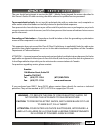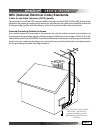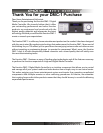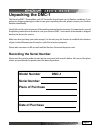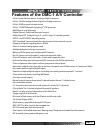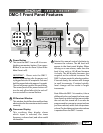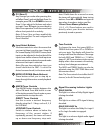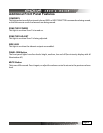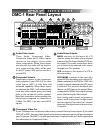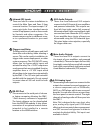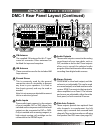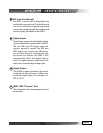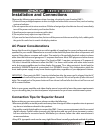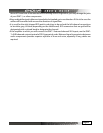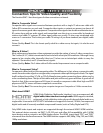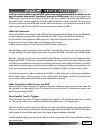
Page 16
Page 17
Audio/Video Inputs
These Audio, Component Video,
Composite-Video and S-Video inputs
connect to the outputs of your audio
video components. When these inputs
are selected, the audio will be heard in
your system and the video will be seen
on the TV screen. VID2 can be used for a
second VCR.
Audio/Video Outputs
MAIN: connects to the inputs of a TV
monitor, where the video of any selected
input and the On Screen Display (OSD) can
be viewed. The audio connections allow
you to listen to any selected audio source
through your TV’s speakers.
VCR: connects to the inputs of a VCR to
allow recording.
VID2/MON2: connects to the input of a
second VCR for recording, or to a second TV.
When congured in the OSD for “VID2,” this
output is muted whenever the VID2 input
is selected. This prevents feedback; also
there is no OSD then on this output. When
congured for “MON2,” the output is always
active, the same as the Main output.
Note: Analog audio signals are present at
these L and R outputs even if a digital input
has been selected. The output is a 2 channel
down mix if the digital source has more than
2 channels.
DMC-1 Rear Panel Layout
Component Video In
These inputs connect to the component-
video outputs of your DVD, SAT or other
video source (VID1) if they have this
advanced capability. When these inputs
are selected, the DMC-1 will automatically
route any video signals going into these
jacks to the component video outputs.
Note that component video provides the
best picture compared to composite or
S-Video. The DMC-1 can also route HDTV
signals.
Component Video Out
If your TV Monitor has component video inputs, connect them to these outputs. If you select
DVD, SAT or VID1, then any video signals going to the component inputs, will pass through to
your TV monitor. The DMC-1 can also up convert any Composite Video or S-Video signals from
the other inputs to Component Video.
1 2
3
8
9
4
5 6 71 2 3 4
10



